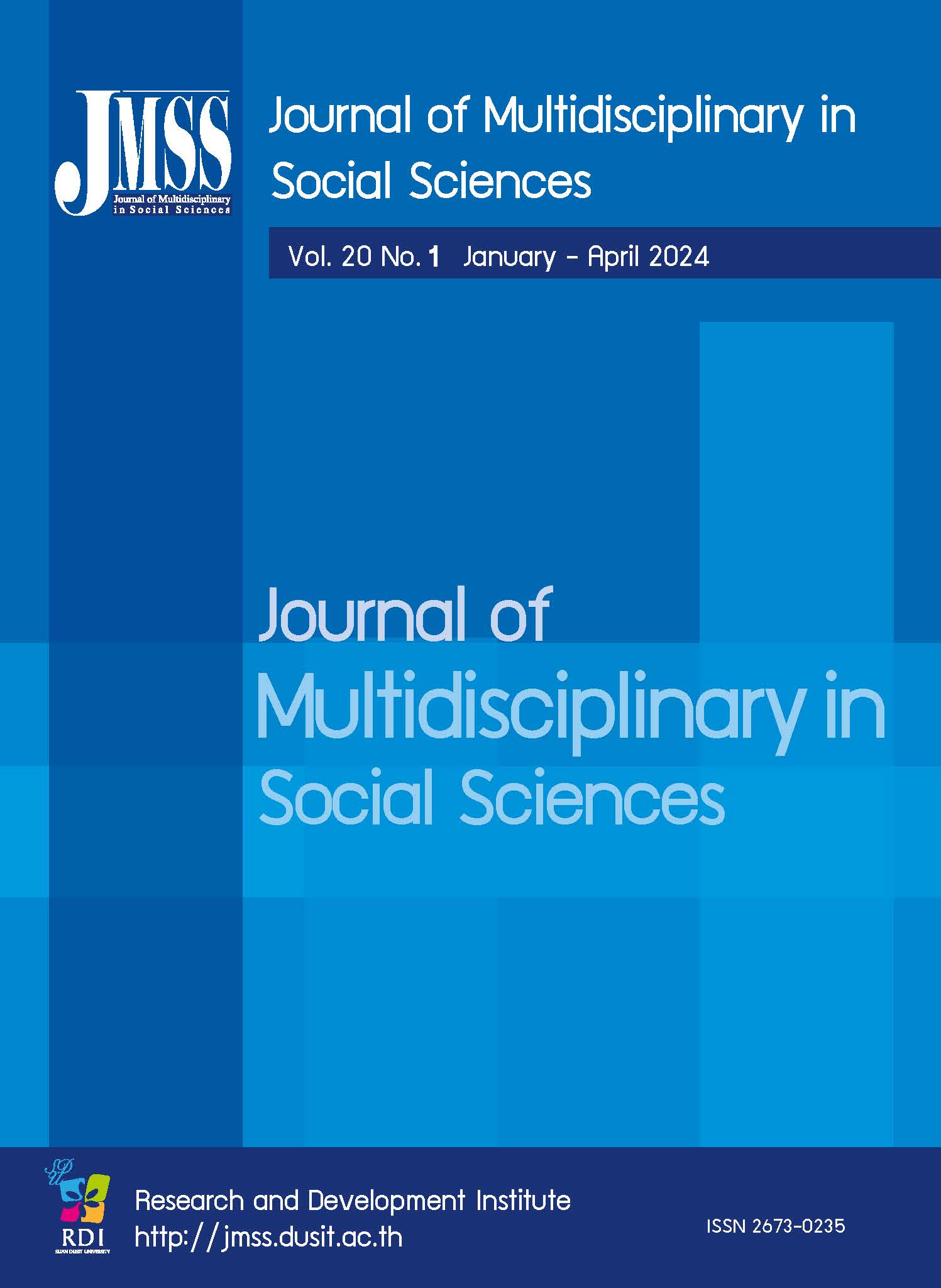Education Management Model for Early Childhood Development Promotion
Keywords:
Education management model, Development, Early childhood children, ParentsAbstract
This research aims to assess the education management model for development promotion of early childhood. The research team conducted the simple random sampling. The sample group included 93 parents of early childhood students in kindergarten level 1 and 2 of La-orutis Demonstration School, Bangkok, La-or Plus Curriculum in educational year of 2020. The research tool is a questionnaire developed by the research team in accordance with Early Years Foundation Stage Statutory Framework (EYFS). The research team checked the content validity by Index of Item – Objective Congruence (IOC) and the result is between 0.80-1.00. the reliability Cronbach’s alpha value of questionnaires is 0.96. The statistics applied in the research are means and standard deviations. It is found that the authentic assessment of application of education management model which promotes early childhood children’s development in general and in particular aspects corresponded to realistic situations at a high level, as follows 1) The aspect of inputs corresponded to realistic situations at a high level. The highest item is personnel, followed by environment and learning source management and media and innovation, respectively. When considered in each item, it was found that the number one was the school prioritizes and takes the students’ health and safety into account in high level. Number two was Adequate teachers and nursery teachers to take care of all students in high level and number three was The school provides the environment promoting the student’s learning in high level 2) The aspect of process corresponded to authenticity at a high level. The highest item is nutritious care, followed by expressive art and design, communication and language, respectively. When considered in each item, it was found that the number one was the school prioritizes preparation of good and beneficial foods for the students in high level. Number two was the school provides guidance on nutritious food selection for the students in high level. Number three was the school prioritizes food preparation with proper nutrition proportion in high level and 3) The aspect of outcomes corresponded to authenticity at a high level. The highest item is physical health development, followed by communication and language, expressive art and design, respectively. When considered in each item, it was found that the students have proper physical development in accordance with the development criteria in high level. Number two was the students can well move their body and use their muscles in high level. Number three was the students can express their imagination through playing in high level.
References
Boonyos, K. (27, Mach, 2020). Toys development to promote learning about time for early childhood [Poster Presentation]. National conference “Development of Human Resources to Economics and Digital Society”, Bangkok, Thailand.
Department for Education. (2017a). Development matters in the early years foundation stage (EYFS). Retrieved from https://dera.ioe.ac.uk/id/eprint/14042/7/development%20matters%20in%20the%20early%20years%20foundation%20stage_Redacted.pdf
Department for Education. (2017b). Statutory framework for the early years foundation stage Setting the standards for learning, development and care for children from birth to five. Retrieved from https://www.gov.uk/government/publications
Kanchanawasi, S., Pitayanon, T., & Srisukho, D. (1997). Proper Statistic Selection for Research (2nd edition). Bangkok: Pacharakarn Publication.
Khayankij, S., Pridee-dilok, U., & Chaiyot, S. (2018). Classroom corner: Take Peek at a Classroom Corner. Journal of Education Studies Chulalongkorn University, 46(2), 371-386.
La-orutis Demonstration School. (2021). Education Quality Development Plan of Educational Institutions for Educational Year of 2021-2024. Bangkok: Laorutis Demonstration School, Suan Dusit University.
Office of the Education Council (ONEC). (2021) Early Childhood Children Development Plan 2021-2027.
Bangkok: Prik Waan Graphic.
Panaprom, D. (2023). Early Childhood Education Management in the New Normal Era. MBU Education Journal: Faculty of Education Mahamakut Buddhist University, 11(1), 254-269.
Pitaksinsuk, T. (2021). Crisis of early childhood children affects the country’s future. Journal of Early Childhood Education Management, 1(1), 77-89.
Sunkthong, C., Siri-ampankul, P., Keebang, J., & Chuensuwan, I. (2018). Situation of health, development and emotional foundation problems of early childhood children (research report). Bangkok: National research Council of Thailand and The Thailand Research Fund.
Yanachai, O., & Saka, S. (2019). A Model to develop of reading and writing through brain Based learning for pre-school students in Bann Den Lek School. Veridian E-Journal, 12(1), 640-657.

Downloads
Published
How to Cite
Issue
Section
License

This work is licensed under a Creative Commons Attribution-NonCommercial-NoDerivatives 4.0 International License.







